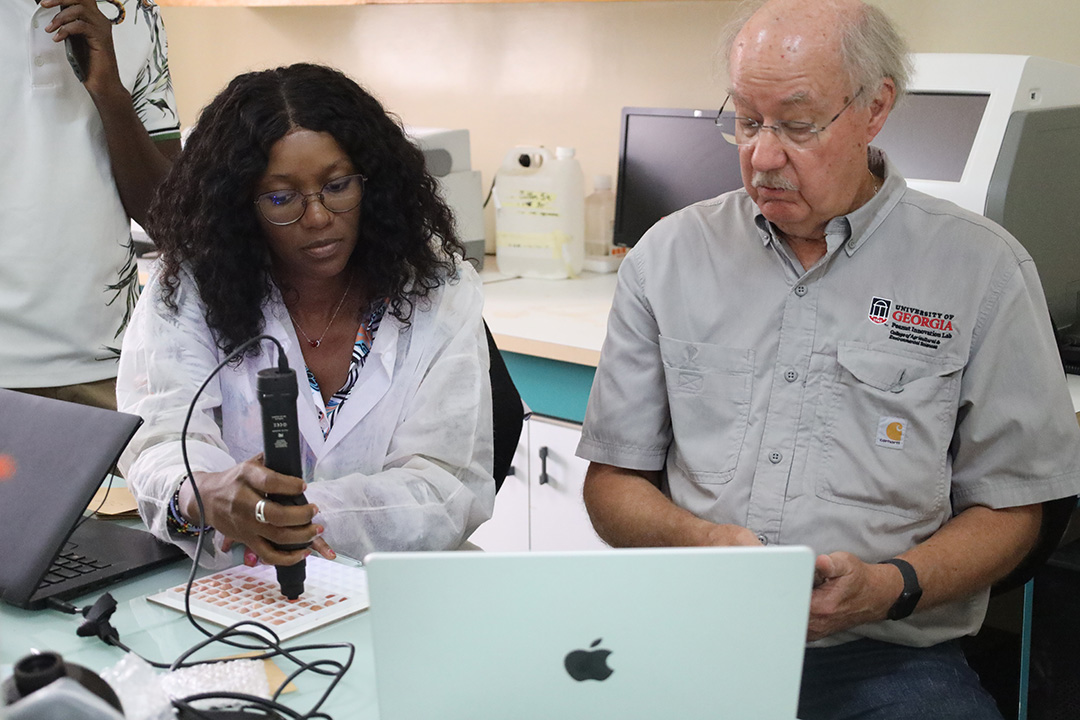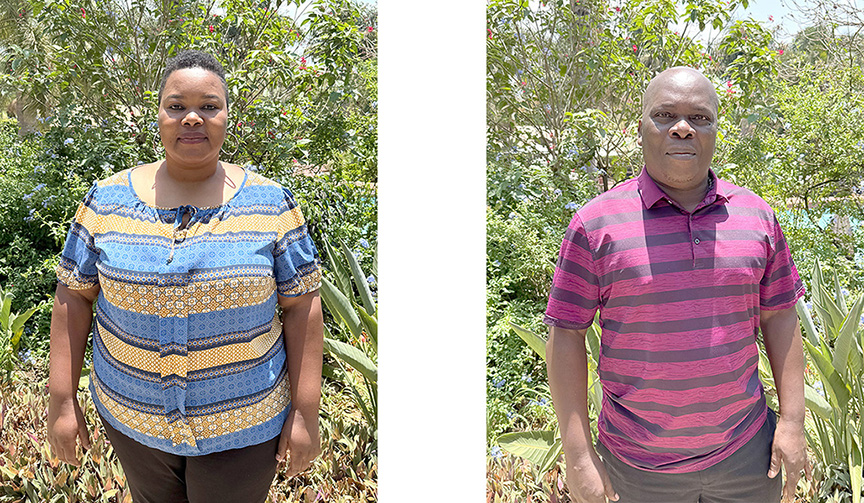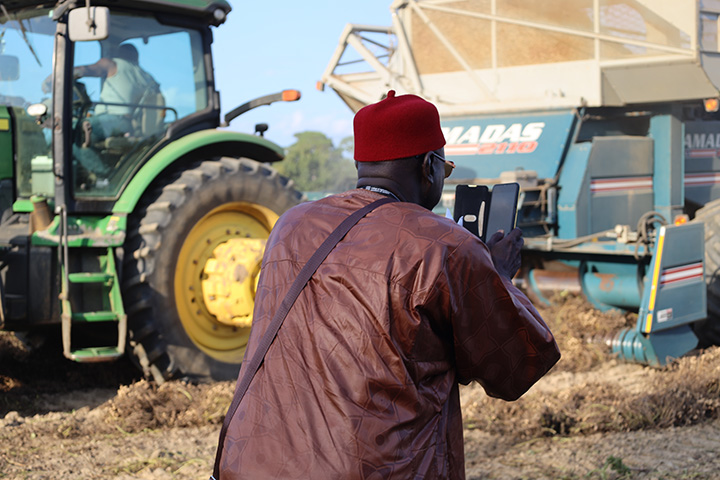Women around the world play an important role in producing peanut, but how those nuts get to market is a complicated and critical part of the value chain. Reducing the risk of aflatoxin contamination, for example, may involve commercialization schemes to incentivize farmers to follow best practices and buyers to get nuts into safe storage quickly, but those schemes also could have ripple effects in households. Kaitlin Fischer, a graduate student working with the Feed the Future Innovation Lab for Peanut, has been awarded a Fulbright Scholarship to compare interventions to see how two types of commercialization schemes impact peanut farmers, especially women.
“Women in northern Ghana play important roles in peanut production, processing, and marketing, and the income they generate tends to be used for household well-being,” Kaitlin said in her grant application.
She will evaluate two development projects in Ghana that create linkages between production and consumption to increase the value of peanuts for farmers and, along the way, provide a mechanism for getting safe, nutritious peanuts to consumers.
One set of interventions comes from the Peanut Innovation Lab project led by Pennsylvania State University and the Savanna Agricultural Research Institute. Time poverty among women smallholders in Ghana: Implications for gender priorities in the peanut value chain enhances women’s participation in the peanut value chain by introducing labor-saving technologies and training through gender-integrated farmer field schools. Fischer has worked on this project already as part of her work to attain a PhD in rural sociology at Penn State.
The second intervention comes from a partnership between nonprofit Project Peanut Butter and The Hershey Company to produce a high-quality, nutritious peanut product for 50,000 Ghanaian schoolchildren. The project is led by Mark Manary, a researcher at Washington University in St. Louis and principal investigator of another Peanut Innovation Lab project involving nutrition in school children. By incentivizing farmers through higher prices, inputs, and training, PPB and Hershey hope to acquire a large supply of locally-sourced, contaminant-free peanuts.
Fischer will conduct intensive interviews with 40 households in four villages over nine months to broaden understanding of how well these interventions work and whether they create unintended consequences.
“I aim to understand if and how peanut value chain development can improve the welfare of both men and women in northern Ghana,” Fischer said.








